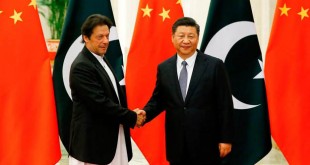By: Uzair Salman
The 2018 annual report released by the Human Rights Commission of Pakistan described the state of higher education in Pakistan in one sentence: “The focus has not been on the promotion of higher education, but on legal battles and survival issues.” Under the 18th Amendment, the provincial governments were supposed to establish their own higher education commissions (HECs). But, despite the passage of almost 9 years, the provinces have not constituted their own higher education commissions. Until now, only Punjab and Sindh have set up their own HECs, while Balochistan, Khyber Pakhtunkhwa, Gilgit-Baltistan and Azad Kashmir have failed to make any substantial progress on this front.
Prior to the 18th Constitutional Amendment (2010), education under the entry No. 38 “Curriculum, Syllabus, Planning, Policy, Centers of Excellence and Standards of Education” was in the Concurrent Legislative List and it remained as a joint function of federal and provincial governments. Federal government regulated higher education through federal Higher Education Commission (HEC) for which HEC Ordinance, 2002, was enacted. With the passage of the 18th Constitutional Amendment, education was devolved to the legislative and executive jurisdiction of the provinces. Meanwhile, a new entry at No. 12 of Federal Legislative List Part-II was inserted into the constitution i.e. “Standards in Institutions for Higher Education and Research, Scientific and Technical Institutions.” which falls under the purview and domain of Council of Common Interests (CCI) as joint/shared responsibility of both the Federal and Provincial governments.
Realizing the role of the provincial governments in higher education sector under the 18th Constitutional Amendment, Sindh and Punjab, being two most populous provinces, established their respective provincial higher education commissions through Acts of Assembly but it was opposed by the leadership of federal HEC declaring it in violation of the Supreme Court orders which resulted in a tussle among the federal and provincial entities. This tussle adversely affected performance of higher education sector. The relationship among the federal HEC and provincial governments of Punjab and Sindh was further drained when a meeting of vice-chancellors was convened by federal HEC during the first week of January 2018 at Lahore without taking Punjab government on board to discuss devolution of the commission in the light of the 18th Constitutional Amendment. Showing serious reservations over the agenda of the meeting, which was already under deliberation by the sub-committee constituted by Council of Common Interests (CCI), Punjab and Sindh provinces barred their vice-chancellors from attending the meeting.
As a shift from earlier four-year policy, for the first time since the establishment of Punjab HEC in October 2014, the representative of Federal HEC not only attended the meeting of governing body of PHEC but also agreed to work in a more significant way. Executive Director federal HEC, Dr Arshad Ali, himself represented HEC at the PHEC commission meeting in Lahore. During last four years, no representative from federal higher education body attended any meeting of PHEC despite the fact, PHEC Act mentions the representation of HEC in its governing body, commission. The relationship between the two organizations remained cold as federal HEC did not accept the existence of provincial higher education body established by the most populous province of the country with the largest network of more than 55 public and private sector universities along with more than 1000 colleges. Earlier, Punjab HEC chairperson Prof Dr Mohammed Nizamuddin visited HEC Secretariat in Islamabad on the invitation of HEC Executive Director where both of them agreed to undertake joint ventures and steps to improve quality of teaching and research. They also established a four-member joint committee over the issue of poor quality of MPhil and PhD theses in the light of a letter written by Governor of Punjab to the vice chancellors of the provincial universities. The academic circles appreciated the gesture from both sides and hoped that joint efforts would be greatly helpful in promoting higher education in Pakistan.
The multiple challenges being faced by Pakistani higher education sector can be effectively dealt through meaningful and collaborative continuous engagement among federal and provincial higher education bodies. They need to undertake joint steps focusing improving quality of teaching and research in higher education, the inclusion of Pakistani universities among top-ranked international and regional universities, playing a facilitative and supportive role to universities by catering for their growing needs. It is only possible through harmony and respecting one another’s constitutional and legal role/mandate and, above all, ensuring that personalities are not above the institutions.
Read More: Reforming Higher Education in Pakistan
As a federal country, having central and provincial governments, Pakistan also needs to learn from other federations’ experiences. As per the QS Ranking 2016, among the top five countries with strongest higher education systems in the world, four countries are federations with the effective role of federating units in the higher education sector. According to a study titled “Post-Secondary Education in 12 Federations” conducted by the Forum of Federation, a Canada-based institute, in most of the federal countries (10 out of 12), the primary responsibility for governing, funding of public sector HEIs and approval of new academic programs lie with federating units.
Learning from international best practice and effective liaison among federal and provincial governments can also be greatly helpful in promoting and consolidating higher education in Pakistan.
PTI Government and Higher Education
After being elected as the 22nd Prime Minister of Pakistan, Imran khan, in his maiden speech, highlighted the importance of knowledge economy, youth empowerment and strengthening higher education. He vowed to make every possible effort to provide required resources to universities for promotion of higher education in the country. He termed promotion of education, uniformity in curriculum and provision of modern educational facilities to youth in the field of science and technology as foremost priorities of his government.
A careful review of policy documents and election manifesto of Pakistan Tehreek-e-Insaf (PTI) indicates the highest priority to education, notably higher education, and health. This document shows the firm resolve of the PTI that it has committed to making universities autonomous, increase university enrolment by establishing new universities and enlarging existing capacity. The appointment of Mr Shafqat Mahmood (a graduate of Harvard University) as minister for Federal Education and Professional Training is a good omen for the higher education sector.
Although, the number of Pakistani universities has increased to 192 still low accesses to higher education ratio, i.e.9.1 percent, has been reported which is even less than that of other neighbouring countries. The ratio of PhD faculty still remains below 30 percent. All the stakeholders of higher education sector have a consensus view that without an increase in higher education allocations (funds) and the facilitative role both at federal and provincial levels, it seems difficult to get desired results. There is a dire need to increase higher education allocation from 0.26 percent to at least 1 percent of GDP. It is expected that PTI government would ensure effective implementation of its youth policy based on three Es: education, employment and engagement.
Reforming HEC
While many issues are pending with the Ministry of Inter-Provincial Coordination (IPC) and the Council of Common Interests (CCI), determining a new constitutional role for the Higher Education Commission (HEC) remains a test case .
The HEC was founded during the Musharraf regime and is still functioning in view of the provisions of the original HEC Ordinance 2002. As per ruling of the Supreme Court in 2011, the 18th amendment would have no effect on the functioning of the HEC and in case of any conflict, the ordinance shall prevail. This effectively means that any notification of devolution could not supersede the ordinance of the commission. Due to this judgment, the CCI has expressed reservations from time to time in giving a green signal to provincial higher education commissions.
A deep dive into the 18th Amendment’s text reveals that the federal government has the mandate to oversee matters pertaining to higher degrees from abroad such as issuance of equivalence and managing foreign scholarships by virtue of entry No. 16 in the Federal Legislative List (FLL) Part-I, but issues related to education planning and standard setting for higher education, research, scientific and technical institutions fall within the purview of the Council of Common Interests (CCI) vide entries Nos. 7, 11 and 12 of FLL Part-II.
There is another legal obstacle to the devolution of higher education subject. If a university has multiple campuses in different provinces like COMSATS University, they can’t be regulated by provinces. The federal legislature can exercise extraterritorial authority as per the Constitution but no such extraterritorial authority has been conferred to provincial legislatures. This means a large number of universities will still be regulated by Islamabad even if the powers were devolved to provinces. Many parliamentarians are of the view that the authority of standard setting for higher education should be exclusively vested in the federal HEC whereas provincial HECs should be empowered to perform monitoring and evaluation functions as this will slice up some of the fiscal burden on the federal government. However, this opinion also clashes with the spirit of the18th Amendment.
These issues are very grave and need to be addressed urgently. The HEC can’t continue running under the 2002 Ordinance and its role must be clarified in order to refute narratives such as ‘provinces versus centre.’ Accountability of the HEC is also a big question mark as the HEC has wasted billions on half-baked megaprojects such as establishment of new universities that were later scrapped. It is also debatable if the HEC has the mandate to claim exorbitant fees for attestation of mere photocopies and for issuance of equivalence certificates. However, Islamabad is still in a state of denial even after almost 9 years. HEC’s devolution is a complex puzzle but our parliament seems unaware of the extent of the problems. Unfortunately, problems that are studiously ignored only grow worse with time.
If there is a useful lesson from years of fretting over devolution of the HEC, it is that such implementation needs better preparation and more clarity about intentions — not just at the top end of the scale. The new HEC chairman said, “If we have confidence that provinces can implement standards adequately, we can delegate powers to them in spirit of the 18th Amendment. So, the way forward to overhaul our higher education system is through a meaningful dialogue among all stakeholders and through capacity-building of provincial HECs. Transparency and autonomy will be important; otherwise, the higher education reform agenda may get overwhelmed by a familiar internecine patronage politics.”
 Jahangir's World Times First Comprehensive Magazine for students/teachers of competitive exams and general readers as well.
Jahangir's World Times First Comprehensive Magazine for students/teachers of competitive exams and general readers as well.



